Open-ended and independent play is one of the things that can build all the skills and tools necessary for kids to grow into successful and sufficient adults.
It is important to remember that summer vacations are some of the fondest memories your family will make and are therefore worth the effort!
Transitioning your child from their crib to a bed can be a challenge. It may seem like just yesterday that you finally got your baby to sleep through the night and now you face sleepless nights once again as your child (naturally) tests the limits of this newfound freedom.
Many kids will get up several times a night because instead of rolling over and falling back asleep, they prefer to show up at your bedside. One of the reasons they do this is because their new sleeping situation can seem scary. After all, being by themselves in larger bed with no sides can make them feel insecure at first. Thankfully, with time and a whole lot of patience, things will get better.
If you are contemplating the big switch, here are some tips to make it go as smoothly as possible:
- Reinforce your child’s bedtime routine. If your child is used to a snack, bath and a story before bed, follow this same pattern when they move to a big bed. This will help your child adjust. Speaking of adjustments, don’t make the move out of the crib when there are other big events taking place. This includes potty training or a new baby. Expecting? Make the transition at least three or four months before your due date so your child doesn’t feel like they are being pushed out of their crib.
- Read about it. There are plenty of good books you can read to your child that talk about how exciting it is to graduate to a “big bed.”
- Get your child involved. If possible, let your child pick out the new bed. If you already have one, at least let them pick out some bedding to make it feel like their own. You can make the bed extra cozy with the blanket from their crib and stuffed animals.
- Allow plenty of extra time at bedtime. You may want to start your child’s bedtime routine earlier than usual the first few nights to allow for some inevitable ups-and-downs.
- Let your child know they are doing a great job. For every small step toward adjusting to their new sleeping arrangement, let your child know how proud you are of them. Maybe they only got up twice during the night instead of every hour – that’s progress – and it needs to be acknowledged!
You may think your child will never stay in their bed all night. But it will happen. It just takes a period of adjustment for you and your child.
Premier Academy offers affordable childcare in the Omaha/Elkhorn area. To learn more, visit us at premieracademyinc.com.
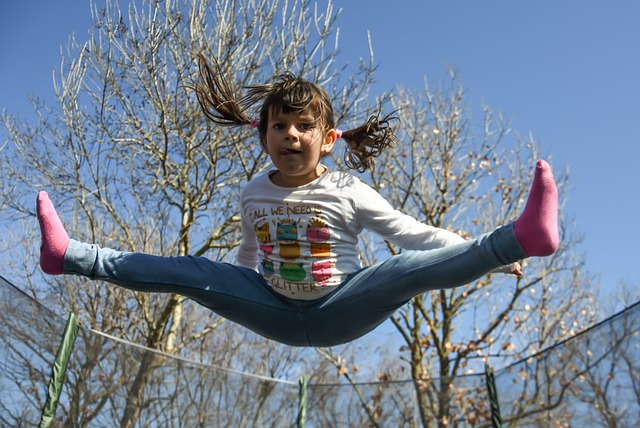
The holidays are here and it is a good time of year to make sure you are raising grateful kids. This time of year allows people to pause and take some time to reflect on their blessings.
As parents, it is important that we teach our children to be grateful, as well. Unfortunately, raising kids that appreciate all that they have been given isn’t always easy. In fact, most parents struggle when it comes to teaching their children to focus on being thankful for what they have – instead of always wanting more.
If you are struggling to instill a sense of gratitude in your children, you are not alone. Read on for some tips to help you raise more grateful kids!
- Be a good role model. When you are grateful for what you have, your children are likely to follow suit. Never miss an opportunity to express gratitude. Your kids will notice. For example, if your spouse does the dishes or your child helps pick up around the house, sincerely thank them and let them know how much it means to you.
- Volunteer. When kids work with the less fortunate, they begin to understand how fortunate they are to have even the most basic things like food to eat and a roof over their head.
- Encourage them to look at the bright side. While disappointments and setbacks are a part of life – and it is fine to feel bad – let your kids know that when one door closes, another one truly does open, and things will get better. And while you should never dismiss their feelings, you also should guard against allowing them to wallow for too long.
- Give experiences instead of things. It is easy to get caught up in the culture of more, more, more. To counter this obsession with material things, consider gifting your children experiences instead of things. One-on-one time with a parent at the zoo, for example, will create more memories than the latest action figure. Turning off the TV and tossing toy catalogs is also a good idea. This will help to limit kids’ exposure to ads designed to make them feel like they need more or newer toys or video games.
- Talk about it! As part of their bedtime routine, ask your children to tell you what happened to them during the day for which they are grateful. Did they make a new friend? Get a good grade on a test? Nothing is too small to be grateful for.
Raising grateful kids is a process but well worth the effort. It is an investment in your child’s future happiness and contentment. What’s more, when all members of your family are grateful, it will create stronger bonds and more happiness and harmony in the home.
The current situation has caused many American families to consider bringing home a pandemic pet. A recent survey from TD Ameritrade finds that 33% of Americans have considered fostering or adopting a new pet amid COVID-19.
Welcoming a new pet into your home is a big decision. Even if you understand all the benefits of owning a pet – and there are several – it is important that you do not forget about the responsibilities that come with it. Here are some things to consider:
- Pets require a great deal of time and energy. If you are feeling stretched or always short on time, it probably is not the right time to add a pet to the mix. While pets can provide stress relief, they can add to your stress if you are not ready for it.
- Pets are not one-size-fits-all. Before you commit to a new pet, you must be sure it is a good fit. For example, if you live in a small house with no fence, a big dog probably does not make sense.
- Pets are not cheap. Even pets such as fish can cost more than you might think. Consider all the expenses you are likely to incur.
If you feel that you have the time, energy and money to add an animal to your family, then pet ownership can be a wonderful experience. This is especially true today, when social distancing has many people feeling isolated and alone. Further, having a pet gives kids (and parents) a chance to focus on something positive.
Below are just a few of the unique and priceless benefits families can derive from pet ownership:
- Improved Mental and Emotional Health. The Centers for Disease Control and Prevention reports that owning a pet can reduce blood pressure, lower stress and more. Pets love to shower affection on their owners, something we all need!
- Companionship. Lockdowns have been hard. Having an animal to focus on and take care of can help children and adults improve their mood by taking their minds off their problems.
- Responsibility. When children are expected to help take care of a family pet, they learn accountability. It also can improve their self-esteem because they understand that they are needed.
- Better Physical Health. Taking your pet for a walk or even just playing with them encourages an active lifestyle and gets people moving.
Finally, if you are considering a pet, consider adopting instead of shopping. The Nebraska Humane Society in Omaha has several animals ready for a forever home. There also are a tremendous number of pet rescue organizations in the Omaha/Elkhorn area.
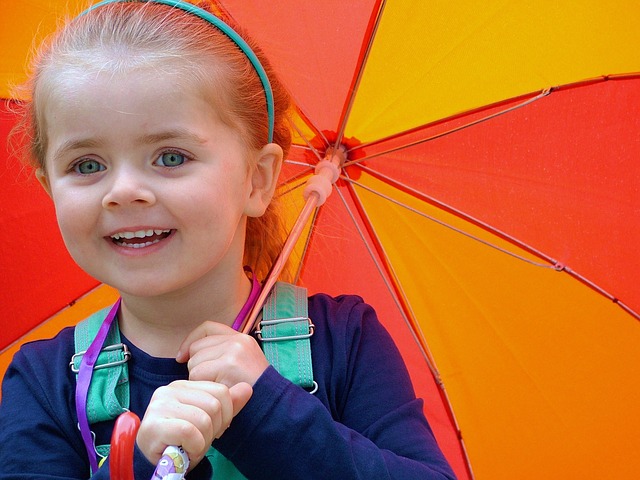 During the current COVID-19 crisis, many families are seeing their normal routines up-ended. This can cause stress and anxiety for all family members – especially children. Keeping a sense of calm can help kids manage their anxiety while also teaching them some important lessons about resilience. Lessons they can use long after the current pandemic has passed.
During the current COVID-19 crisis, many families are seeing their normal routines up-ended. This can cause stress and anxiety for all family members – especially children. Keeping a sense of calm can help kids manage their anxiety while also teaching them some important lessons about resilience. Lessons they can use long after the current pandemic has passed.
Parenting in a Pandemic: Tips to Keep the Calm at Home
Fear, uncertainty and being holed up at home make for tough times for families. To make children feel safe, it is important to keep healthy routines and manage their behavior.
Supporting Kids During the Coronavirus Crisis
https://childmind.org/article/supporting-kids-during-the-covid-19-crisis/
As the coronavirus crisis continues, parents everywhere are struggling to keep children occupied. If you are anxious about protecting and nurturing your kids through this, you’re in good (virtual) company.
How to Keep Kids Positive Through the Pandemic
Helping your kids stay positive can help them deal with the COVID-19 crisis, it also can help them become better learners!
Premier Academy offers affordable childcare in the Omaha/Elkhorn area. To learn more, visit us at premieracademyinc.com.
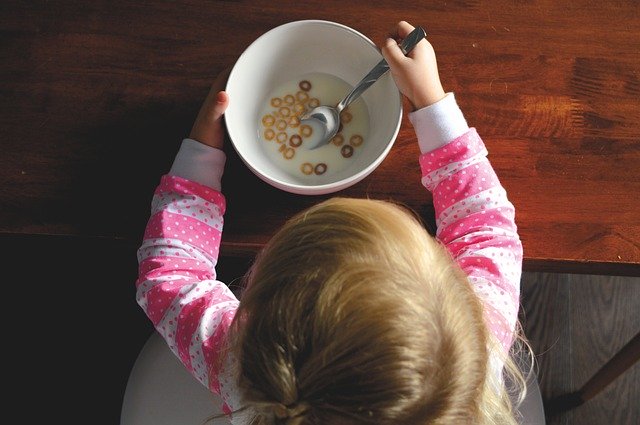
Children grow and learn best when there is structure and routine in their lives. Since kids don’t have a great deal of control, routines are a great way to allow them to feel a sense of comfort, organization and stability.
Research repeatedly shows that kids who have routines are better behaved and develop more self-control. With today’s COVID-19 crisis, many families are seeing their normal routines up-ended. This can cause stress and anxiety for all members of those families – especially children.
While the way families operate may have changed during the current pandemic, that doesn’t mean that routines are no longer necessary. In fact, establishing structure in the lives of children (and adults) has never been more important.
Trying to stick to the same routine they had in place before COVID-19 hit is not possible for most families. However, new ones can be established relatively quickly and they can be just as effective as the old ones. If you have had trouble establishing structure to your days since the pandemic hit, there is no reason you can’t start now. Here are some suggestions to help you do just that:
Keep it simple. Elaborate routines are not only unnecessary they are often quickly abandoned. For younger children, a visual chart is a good way to allow them to understand what is expected of them each day.
Stick to regular bedtimes. Children who are well rested and go to bed and get up at the same time every day are better behaved and able to learn more effectively.
- Get dressed. When you stay in pajamas all day it is harder to get motivated. Changing out of pajamas each morning can make a big difference in how kids approach the day.
- Serve meals at the same time. Regular mealtimes are comforting and prevent snacking all day. They also stave off mood swings created when children get hungry.
- Assign chores. Chores help kids feel as if they are a part of the family and gives them a feeling of accomplishment. Bonus: It helps parents!
- Get active. Family walks or bike rides do wonders for every family member. Even just sitting outside in the sunshine can improve moods.
- Encourage creative outlets. Painting, drawing and other similar hobbies are a great way to break up the monotony of the day. With school out, such activities also allow for interactive learning.
- Monitor screen time. While homework, games and even socializing all take place on electronic devices, kids should not spend hours a day on screens.
Structure and routine provide much-needed reassurance to children during times of uncertainty. They also help to maintain balance and normalcy and promote physical and mental health. The more a child can anticipate what is going to happen, the better they will be able to cope with life in times of uncertainty.
Premier Academy offers affordable childcare in the Omaha/Elkhorn area. To learn more, visit us at premieracademyinc.com.
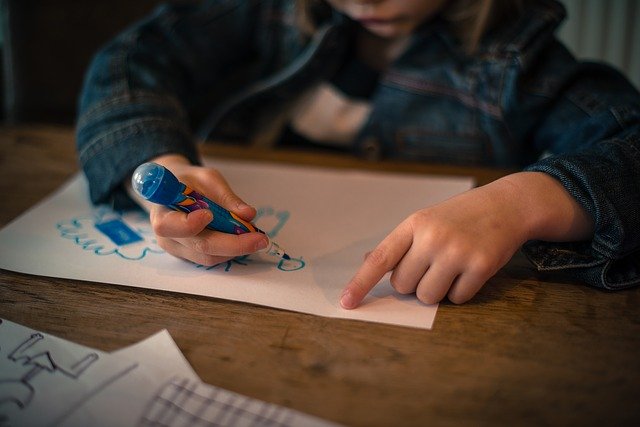
The coronavirus has upended lives across the world. One of the most devastating effects of this crisis is the fact that so many families are separated. This includes seniors who can no longer spend time with their beloved grandchildren.
While Zoom and FaceTime seem to be the best options for connecting with extended family, many older Americans do not have tablets, smartphones or computers. Even those who do are often unsure how to use video-conferencing apps. Thankfully there are other ways to stay close amid the COVID-19 crisis.
An article in the Boston Globe, How to Keep Grandparents and Grandchildren Connected in New Ways, from a Distance, highlights the fact that keeping in touch with family members doesn’t always require an electronic device or downloading app.
The article lists some old-fashioned – but equally fulfilling – methods for staying connected. These include things like having a set time for a phone call, writing letters and making care packages. How about deciding on a TV show a grandchild and grandparent can both watch in their one homes and then following it with a phone call to discuss it?
Sheltering in place can be stressful no matter how old – or young – a person is. The key is to find ways to remain close even when we aren’t together.
Premier Academy offers affordable childcare in the Omaha/Elkhorn area. To learn more, visit us at premieracademyinc.com.
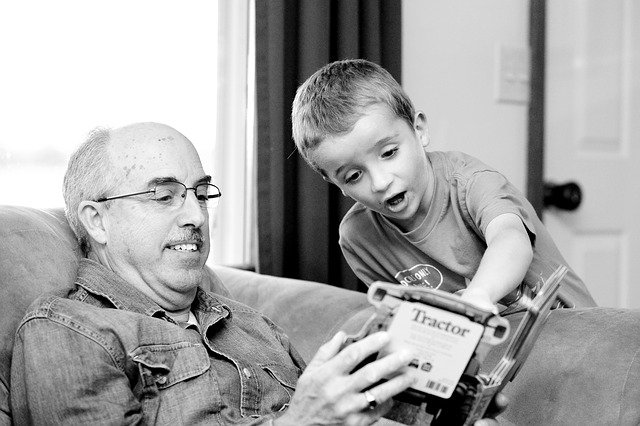
The need to shelter in place has taught us a lot about ourselves and our families, especially the importance of grandparents. Perhaps one of the most important things it has taught us is that dependence on extended family isn’t a bad thing. In fact, once some semblance of normalcy returns, the commitment to strengthen these family ties is likely to occur.
______________________________________________________
Pandemic Proves How Much We All Need Extended Families
It isn’t difficult to see the vital role that healthy families play at this time. And in many cases, large, extended and curated families working together have a better chance of weathering this crisis and its aftermath.
______________________________________________________
Far Apart but Closer Than Ever: How the Coronavirus is Helping Extended Families Connect
One silver lining to the coronavirus is that it provides people with an opportunity to rededicate themselves to the relationships that matter most. Though the words are communicated virtually, the affection is just as real.
______________________________________________________
Creative Alternatives to Family Gatherings During COVID-19
In one sense, the circumstances of COVID-19 have made family get-togethers difficult – if not impossible. But in another sense, due to technology, connecting with loved ones has never been easier.
Premier Academy offers affordable childcare in the Omaha/Elkhorn area. To learn more, visit us at premieracademyinc.com.
The COVID-19 pandemic is uncharted territory for all of us. While there is a lot of uncertainty, one thing we do know is that sheltering in place is stressful for everyone – no matter what their age.
Children who are used to spending a great deal of time with extended family members are likely to be confused by the fact that they are no longer able to see them – even though they have been told that it is only temporary. Grandparents and other relatives are likely to feel unsettled and lonely, as well, by this separation.
So how can extended families remain close while practicing social distance? Some of the easiest ways to do it is through phone calls, texts and video chats. Setting a specific time of the day or week for these interactions is a great way to make sure that everyone has something to look forward to. It also helps to establish a routine which is essential in times like these.
While the simplest way for families to keep in touch is talking on the phone, this is unlikely to hold the attention of young children for very long. That’s why a little creativity is in order. If children are close to their cousins, for example, consider a daily or weekly cousins’ video chat. An adult can read stories to the group or older cousins can take over this duty. This will keep younger cousins busy and will make older cousins feel important. It also will provide parents with some much needed free time.
It is critical to remember that everyone is in this together. Something as simple as video chatting with a niece or nephew may not seem like a big deal but it gives parents a much-needed break.
Another idea is to make and eat dinner “together.” Choose recipes as an extended family and sit down for a virtual meal. Grandparents might want to recreate some of the meals they ate when they were kids.
No matter what activities you choose to do while sheltering in place, be sure to give the youngest family members a say. Chances are they are feeling like they have no control in what can be frightening times. When they are able to decide activities their extended family does together, it gives them a sense of security.
Finally, while social distancing is important, try to think of it as physical distancing instead. Thanks to technology such as smartphones and video apps, there is no reason why families cannot stay connected until they can all be together – in person – once again.
Premier Academy offers affordable childcare in the Omaha/Elkhorn area. To learn more, visit us at premieracademyinc.com.
Operating Hours
Monday-Friday
Omaha: 6:30 A.M. – 6:00 P.M.
Elkhorn: 6:30 A.M. – 6:30 P.M.
Premier Academy Elkhorn
20111 Roberts St.
Elkhorn, NE 68022
Phone (402) 289-2239
Enrollment Specialist: director@premieracademyinc.com
Premier Academy Omaha
3525 N. 147th St.
Omaha, NE 68116
(SW Corner of 144th & West Maple rd.)
Phone: (402) 493-8812
Enrollment Specialist: veronica@premieracademyinc.com
